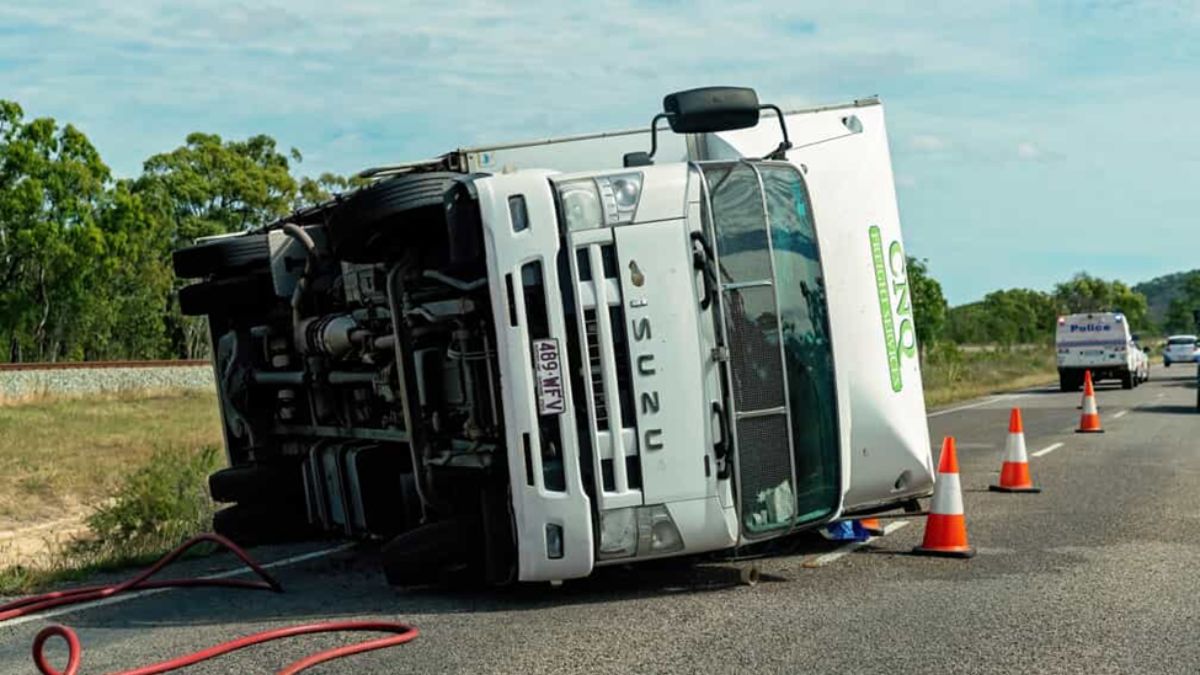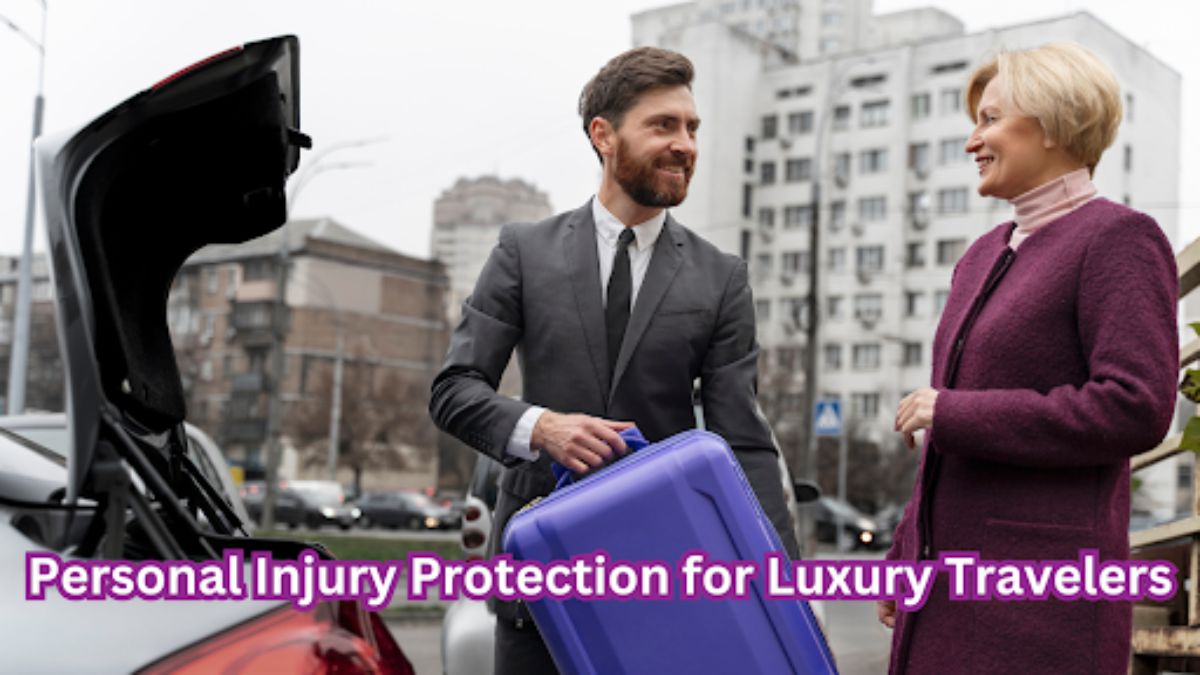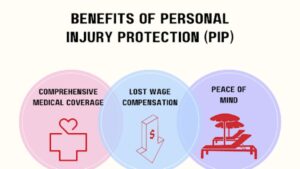INSURANCE
What Every Renter Needs to Know About Tenant Insurance Coverage Options

When renting a home or apartment, tenant insurance is an essential safeguard that offers protection for your personal belongings and liability. Whether you’re living in a small studio or a multi-bedroom house, tenant insurance helps you avoid financial loss in the event of accidents, theft, or unexpected events. However, many renters are unaware of the variety of coverage options available to them. Understanding these options can help ensure that your policy meets your needs while offering valuable protection. In this guide, we’ll walk you through the key tenant insurance coverage options and tips for selecting the right plan.

Reviewing Your Insurance Premium
As a renter, it’s important to periodically review your tenant insurance premium. Premiums can vary depending on several factors, including the value of your belongings, the coverage limits, and the location of your rental. Over time, your needs may change as life changes mean reviewing your tenant insurance and adjusting it to reflect these life changes means reviewing your tenant insurance. It’s essential to shop around to ensure that you’re getting the best coverage for the most competitive rate. Keep in mind that factors like your rental history, claim history, and even the security measures in place at your home can affect the cost of your insurance premium.
Personal Property Protection
One of the core aspects of tenant insurance is personal property coverage. This protects your belongings from damage or loss due to events such as fire, theft, vandalism, or certain natural disasters. Common items covered include furniture, electronics, clothing, and appliances. The amount of coverage you choose will depend on the value of your items. You can either select a policy with actual cash value (ACV) or replacement cost coverage. ACV reimburses you for the value of items after depreciation, while replacement cost coverage provides funds to replace damaged items with new ones.
Liability Coverage

Liability coverage is another crucial aspect of tenant insurance. It protects you if someone is injured on your property or if you cause damage to someone else’s property. For example, if a guest slips and falls while visiting your apartment, liability coverage would help cover their medical expenses and protect you from lawsuits. This coverage can also extend to damage you accidentally cause to the building, such as flooding the apartment below with an overflowing bathtub. Liability protection is particularly important if you live in a shared space or high-traffic area.
Additional Living Expenses Coverage
If your rental unit becomes uninhabitable due to a covered event, such as a fire or severe water damage, additional living expenses (ALE) coverage can help. This provision pays for the cost of temporary housing, such as a hotel or rental property, until your home is repaired. ALE coverage also includes reimbursement for additional living costs, such as meals or transportation, if necessary. It’s important to understand the limits of this coverage, as some policies may only pay for a specific period or a set amount.
Tenant insurance is an important protection that every renter should have in place, but understanding the various coverage options is essential. By staying informed about your options and customizing your coverage, you can make sure that you’re fully protected in case of unexpected events.
INSURANCE
The Benefits of Hiring Storm Damage Repair Experts for Insurance Claims

Navigating the aftermath of a storm can be an overwhelming experience, particularly when it comes to managing the damage inflicted on homes and properties. In these challenging situations, homeowners often face the daunting task of dealing with insurance claims while trying to restore their homes to pre-storm conditions. We will explore the numerous advantages of hiring storm damage repair experts in Duluth who are well-versed in storm damage repair and insurance processes. By engaging these knowledgeable individuals, homeowners can alleviate stress, improve claim accuracy, and ensure the repair process is handled efficiently and effectively.
Comprehensive Damage Assessment
One of the primary benefits of enlisting the help of professionals in storm damage repair is their ability to conduct a thorough assessment of the damage. After a storm, visible destruction may not encompass the entire extent of the issue. Professionals trained in this field have a keen eye for detail and can identify hidden damage, such as compromised roofing, structural issues, and water intrusion. They possess the knowledge to inspect every aspect of the property, from the roof to the foundation, ensuring that nothing goes unnoticed. This comprehensive evaluation is crucial for accurately documenting the damage when filing an insurance claim.
Insurance companies often require extensive evidence and detailed reports to approve claims. By having a professional conduct a meticulous assessment, homeowners can submit a well-documented claim that covers all aspects of the damage. This helps secure the maximum payout and expedites the claims process, reducing the time spent waiting for resolution. Homeowners can thus focus on what matters most: restoring their homes and returning to their daily lives.
Accurate Documentation for Insurance Claims
Filing an insurance claim is often a complex process that can become overwhelming, especially for those unfamiliar with the necessary documentation and requirements. Hiring storm damage repair professionals significantly alleviates this burden. These professionals understand the nuances of insurance policies and can assist homeowners in preparing the required documentation accurately. They provide detailed reports, photographs, and assessments that can strengthen the claim. Their experience in this area helps in clearly articulating the extent of the damage and justifying the costs associated with the repairs.
Additionally, many professionals maintain relationships with insurance companies, which can be advantageous during the claims process. This familiarity can lead to more effective communication and negotiation, ensuring the claim is processed efficiently. Having an experienced professional advocate on their behalf can empower homeowners, allowing them to navigate the insurance maze with confidence. Ultimately, this can result in a smoother claims process and a higher likelihood of receiving the compensation necessary to cover repair costs.
Efficient and Timely Repairs
Once the claims process is underway, the next crucial step is repairing the storm damage. Hiring professionals in storm damage repair ensures the restoration process is conducted promptly and effectively. These individuals possess the necessary skills and tools to conduct repairs safely and efficiently, reducing the risk of further damage to the property. For instance, if a roof has been compromised, timely repairs can prevent water damage from spreading throughout the home, which could lead to more extensive and costly repairs down the line.
Additionally, professionals have established networks of suppliers and subcontractors, allowing them to source materials quickly and often at better prices. This streamlined approach enables homeowners to return to normal routines faster, as repairs are completed promptly. With their ability to coordinate multiple aspects of the repair process, such as scheduling inspections and managing timelines, professionals ensure that homeowners can focus on their lives rather than getting bogged down by the logistics of the restoration.
Stress Reduction and Peace of Mind
Navigating the aftermath of a storm is not only physically taxing but also emotionally draining. The uncertainty and stress associated with damage repair and insurance claims can be overwhelming for homeowners. Engaging storm damage repair professionals allows homeowners to transfer much of this burden to knowledgeable individuals who can handle the intricacies of the situation. With experts taking charge of the repair and claims process, homeowners can rest easy knowing that their property is in capable hands.
Moreover, professionals can provide reassurance during a tumultuous time. They can guide homeowners through each process step, answering questions and addressing concerns. This support fosters a sense of confidence and security, allowing homeowners to focus on their families and daily responsibilities rather than worrying about their property’s restoration. The peace of mind from knowing that experienced individuals are managing the repairs cannot be overstated.
Hiring professionals for storm damage repair can significantly benefit homeowners, particularly when navigating the complexities of insurance claims. From conducting thorough assessments and accurate documentation to ensuring efficient repairs and compliance with local regulations, these knowledgeable individuals provide invaluable support during challenging times. The emotional relief and peace of mind from entrusting these responsibilities to capable hands allow homeowners to focus on restoring their lives after a storm. By forming long-lasting relationships with reliable professionals, homeowners can enhance the value and safety of their properties while ensuring they are well-prepared for future emergencies.
INSURANCE
The Parties That Can Be Held Liable for a Seattle Truck Accident

Truck accidents in Seattle can be devastating. Commercial trucks’ sheer size and weight make collisions particularly dangerous, often resulting in severe injuries and property damage. If you or someone you know has been involved in a truck accident in Seattle, it’s crucial to understand your legal rights. This article will discuss the various parties who could be held liable for such accidents, providing valuable information for those seeking justice.
Seattle area truck accident attorneys can help you navigate the complex legal landscape and protect your interests. They have the expertise to assess your case, gather evidence, and negotiate with insurance companies to secure the compensation you deserve.
The Trucking Company
Trucking companies bear primary responsibility for the actions of their drivers. This means the company can be liable if a truck driver’s negligence causes an accident. Several factors can contribute to a trucking company’s liability, including:
- Negligent hiring and training: If a company hires a driver with a history of reckless driving or fails to provide adequate training, they may be held responsible for accidents caused by the driver’s incompetence.
- Inadequate maintenance: Trucks must be regularly inspected and maintained to ensure their safe operation. If a company fails to properly maintain its fleet and a mechanical failure leads to an accident, it could be liable.
- Overloading or improperly securing cargo: Overloaded or improperly secured cargo can shift during transit, causing the truck to lose control. Trucking companies must ensure that cargo is loaded and secured safely.
- Violations of hours-of-service regulations: Federal regulations limit truck drivers’ work hours to prevent fatigue-related accidents. If a company forces drivers to work excessive hours, they may be liable for any resulting accidents.
In addition to direct liability, trucking companies can also be held vicariously liable for the actions of their drivers. This means the company is legally responsible for the driver’s negligence, even if it was not directly involved in the accident.
The Truck Driver
Truck drivers are directly responsible for their actions on the road. Negligent driving can lead to serious accidents and significant liability for the driver. Specific acts of negligence that could contribute to an accident include:
- Speeding: Exceeding the posted speed limit can significantly increase the risk of an accident, especially for large commercial vehicles.
- Distracted driving: Any activity that takes a driver’s attention away from the road, such as using a cell phone or eating, can be considered distracted driving and can lead to accidents.
- Driving under the influence of drugs or alcohol: Operating a vehicle while under the influence of drugs or alcohol is illegal and extremely dangerous. Truck drivers who are caught driving impaired can face severe legal consequences.
- Fatigue: Driving while fatigued can impair a driver’s judgment and reflexes, increasing the risk of an accident. Truck drivers must adhere to federal regulations regarding hours of service to prevent fatigue-related accidents.
- Failure to yield or maintain proper distance: Truck drivers must be cautious when merging, turning, or following other vehicles. Failure to yield or maintain a safe following distance can contribute to accidents.
It’s important to note that a truck driver’s liability may be influenced by their employment status. If the driver is an employee of the trucking company, the company may be vicariously liable for the driver’s negligence. However, the company’s liability may be limited if the driver is an independent contractor.

The Manufacturer or Supplier
Defective truck components or parts can sometimes cause truck accidents. Manufacturers and suppliers of these components can be held liable for accidents resulting from their defective products.
Examples of defects that could lead to accidents include:
- Faulty brakes: Defective brakes can prevent a truck from stopping in time, leading to collisions.
- Steering issues: Faulty steering components can cause a truck to veer off the road or lose control.
- Tire blowouts: Defective tires can blow out while driving, causing the truck to lose control.
The concept of product liability holds manufacturers and suppliers responsible for defective products that cause harm. There are several theories under which manufacturers or suppliers can be held liable, including:
- Negligence: Manufacturers and suppliers can be liable for negligence if they fail to exercise reasonable care in the design, manufacture, or sale of their products.
- Strict liability: Under the theory of strict liability, manufacturers and suppliers can be held liable for defective products even if they were not negligent. This means the plaintiff must not prove that the manufacturer or supplier was at fault.
- Breach of warranty: Manufacturers and suppliers often provide warranties for their products. The manufacturer or supplier may be liable for damages if a product fails to meet the warranty terms.
The National Highway Traffic Safety Administration (NHTSA) states that defective tires cause truck accidents. In a recent study, NHTSA found that tire failures were involved in approximately 11,000 truck accidents yearly.
Other Potential Parties
While trucking companies, truck drivers, and manufacturers are often involved in truck accident liability cases, other parties may bear responsibility. These parties include:
- Cargo loaders or unloaders: If cargo is improperly loaded or unloaded, it could contribute to an accident. For example, if cargo is not secured properly, it could shift during transit and cause the truck to lose control.
- Road maintenance crews: Poor road conditions, such as potholes or inadequate signage, can increase the risk of accidents. If a road maintenance crew is responsible for creating or failing to address dangerous road conditions, they could be liable for any resulting accidents.
- Third-party contractors: Trucking companies may hire contractors to perform various tasks, such as maintenance or repairs. The trucking company may be liable if a contractor’s negligence contributes to an accident.
It’s important to consult with an attorney to determine all potential parties who could be held liable for a truck accident. An experienced attorney can help you identify all responsible parties and build a strong case to recover damages.
INSURANCE
Personal Injury Protection for Luxury Travelers

What happens when unexpected challenges disrupt even the most luxurious travel plans? In the world of luxury travel, every detail matters from first-class flights to exclusive accommodations. High-net-worth individuals expect only the finest experiences.
Yet, even the most meticulously planned trips can face unforeseen setbacks. This is where Personal Injury Protection (PIP) becomes invaluable, providing a critical safety net for removing the comma: “luxury travellers and ensuring that their journey remains as smooth and secure as possible.
Understanding Personal Injury Protection (PIP)
PIP in simple terms is a form of insurance that provides financial coverage for injuries from an accident, regardless of who is at fault. For luxury travelers, PIP forms the most integral part of their comprehensive travel insurance strategy.
Norfolk, Virginia, a city known for its naval base and rich maritime history, faces unique challenges in personal injury cases due to its bustling port and diverse urban landscape. Navigating the complexities of injury claims in such an environment can be daunting. Seeking guidance from a personal injury lawyer in Virginia Beach or a personal injury attorney norfolk can provide invaluable assistance in understanding local laws and ensuring proper protection.
While standard travel insurance policies provide for the basics, PIP goes a step further by addressing the unique needs and concerns of high-net-worth individuals. It ensures that, in the case of an accident, one’s wealthy traveler can still live in style while receiving the best available medical care without any financial burden.
There is often much higher risk and greater stakes than with the average tourist when compared with luxury travelers. Whether it’s exploring distant destinations, taking part in adventurous activities, or even just navigating unknown territories, there’s always the possibility of some sort of accident or injury.
PIP increases safety precautions against such unforeseen dangers that come with the competition, giving one peace of mind and financial security.
Key Coverage Features of PIP
Personal Injury Protection offers a range of benefits tailored to the needs of luxury travelers. Let’s explore the primary coverage features:
1. Medical Expenses
PIP covers medical bills arising from accidents, which is particularly crucial for luxury travelers who may seek treatment at top-tier medical facilities abroad. This coverage can include:
- Emergency medical treatment.
- Hospital stays.
- Surgical procedures.
- Rehabilitation services.
- Prescription medications.
PIP ensures high-net-worth travelers can access top-quality medical care without financial worry.
2. Lost Wages
One of the most significant benefits of PIP for luxury travelers is compensation for lost income due to injuries. This feature is crucial for high earners, as they could face significant financial losses if they cannot work.
PIP typically covers a percentage of the traveler’s lost wages, helping to maintain financial stability during recovery. This benefit can be particularly valuable for entrepreneurs, executives, or professionals whose income may be impacted by an extended absence.

3. Household Services
Luxury travelers often maintain a certain lifestyle that includes various household services. In the event of an injury that prevents them from performing these tasks, PIP can cover the costs of:
- Housekeeping.
- Childcare.
- Meal preparation.
- Other essential household duties.
This coverage ensures that the traveler’s home life remains as comfortable and well-managed as possible during their recovery period.
4. Funeral Expenses
While it’s not pleasant to consider, PIP also provides coverage for funeral expenses in the unfortunate event of a fatal accident. This benefit can alleviate the financial burden on the traveler’s family and ensure that final arrangements align with their wishes and status.
A personal injury attorney Norfolk can help luxury travellers understand how these coverage features apply in specific situations.
PIP in the Context of Luxury Travel
Luxury travelers face unique risks that set them apart from average tourists. These might include higher-value personal property, which is more vulnerable to theft or damage; a greater likelihood of participating in high-risk activities or sports; and even greater monetary exposure in the event of trip interruptions or cancellations.
For travellers departing from or returning to Virginia, consulting with a virginia beach personal injury lawyer can offer insights into how local laws might affect their PIP coverage.
PIP will be instrumental in mitigating these risks with comprehensive coverage tailored to the luxury travel experience. Most especially in planning luxury trips to international destinations where medical standards could be different, It is very important to embed PIP into the travel insurance strategy.
A personal injury attorney norfolk or, at least, a specialised insurance advisor should be consulted to make sure that the selected PIP coverage fits the needs and destinations of the luxury traveller.
State Variations and Requirements
It’s important to note that PIP laws and requirements can vary significantly across different states. Some states require PIP coverage; some don’t. Luxury travelers should be aware of these variations, especially when planning domestic trips.
For 2024, the following states have required PIP coverage: Florida, Hawaii, Kansas, Kentucky, Massachusetts, Michigan, Minnesota, New Jersey, New York, North Dakota, Pennsylvania, and Utah.
For both of these states, luxury travelers will have to make sure they meet the minimum requirements for PIP, even if they have comprehensive policies that insure them for travel.
Consulting with a personal injury attorney Norfolk can provide clarity on how these state-specific requirements might affect your travel plans.
While PIP provides great cover for personal injuries, many times it will be advisable for luxury travelers to supplement it with more specialized travel insurance policies. These can offer additional protections such as coverage for high-value personal belongings, trip cancellation and interruption insurance, emergency evacuation services, and concierge medical services.
Further, combining PIP with high-end comprehensive luxury travel insurance that covers absolutely every travel touch point can give these high-net-worth individuals a very solid safety net.
Selecting the Right PIP Coverage
Choosing the appropriate PIP coverage is important for luxury travelers. Some factors to consider:
Travel Frequency: The more frequent the travel, the higher the coverage limit or the more comprehensive the policy should be.
Destination Risks: Medical facilities and possible hazards at destinations should be considered.
Existing Health Insurance: A look at how your current health insurance interacts with the PIP coverage is essential, especially for international travel.
Income Level: Ensure your lost wage coverage represents what you take home.
Lifestyle Needs: Consider coverage for additional services you may require if injured.
Recommended Luxury Travel Insurance Providers: While the best options will vary depending on your particular needs, some insurance providers known for offering full-featured PIP options as part of their luxury travel policies include AIG Travel Guard, Allianz Global Assistance, Chubb Travel Protection, and MedJet Assist.
Comparing policies and consulting with a personal injury attorney Virginia or an insurance expert to suit each individual’s unique travel profile is highly recommended.
Common Misconceptions about PIP
Despite its importance, there are several misconceptions about PIP that luxury travelers should be aware of:
Myth 1: PIP is the same as health insurance
Reality: While PIP covers medical expenses, it offers additional benefits not typically included in health insurance, such as lost wage compensation and household services coverage.
Myth 2: Wealthy travelers don’t need PIP
Reality: High-net-worth individuals often have more to lose in the event of an accident. PIP provides crucial financial protection that aligns with their lifestyle and earning potential.
Myth 3: PIP is only for car accidents
Reality: While PIP is often associated with auto insurance, many policies offer coverage for various types of accidents that can occur during travel.
Myth 4: Travel insurance makes PIP unnecessary
Reality: PIP complements travel insurance by providing specialized coverage for personal injuries and related expenses. It’s often more comprehensive in its injury-related benefits than standard travel insurance.
Conclusion
Personal Injury Protection (PIP) is an essential safeguard for luxury travelers, providing comprehensive coverage throughout their high-end journeys. By understanding PIP’s core features, meeting state-specific regulations, and selecting the right policy, high-net-worth travelers can enjoy peace of mind and confidence during their trips. For a tailored approach, consulting with A personal injury attorney Norfolk or an insurance advisor can ensure that your PIP aligns perfectly with your travel needs. After all, true luxury lies in traveling without worry, knowing you’re fully protected.
Frequently Asked Questions
How does Traveler’s insurance work?
Traveler’s insurance covers unexpected events during trips, like cancellations, medical emergencies, or lost luggage.
Is there a grace period for Traveler’s insurance payments?
Yes, many travel insurance providers offer a short grace period for late payments, but the duration and terms vary by policy.
Can you cancel Travelers insurance and get a refund?
Yes, you can cancel a Travelers insurance policy and may be eligible for a refund, depending on the policy terms and timing of the cancellation.

 Cartoon1 year ago
Cartoon1 year agoUnlocking the Potential of Nekopoi.care: A Comprehensive Guide

 Game1 year ago
Game1 year agoExploring Aopickleballthietke.com: Your Ultimate Pickleball Destination

 BUSINESS1 year ago
BUSINESS1 year agoWhat Companies Are In The Consumer Services Field

 BUSINESS11 months ago
BUSINESS11 months agoUnraveling the Mystery of 405 Howard Street San Francisco charge on Credit Card

 HOME IMPROVEMENT1 year ago
HOME IMPROVEMENT1 year agoVtrahe vs. Other Platforms: Which One Reigns Supreme?

 TECHNOLOGY12 months ago
TECHNOLOGY12 months agoThe Guide to Using Anon Vault for Secure Data Storage

 ENTERTAINMENT8 months ago
ENTERTAINMENT8 months agoUnderstanding Bunkr Album: A Comprehensive Guide

 ENTERTAINMENT1 year ago
ENTERTAINMENT1 year agoThe Epic Return: Revenge of the Iron-Blooded Sword Hound
















